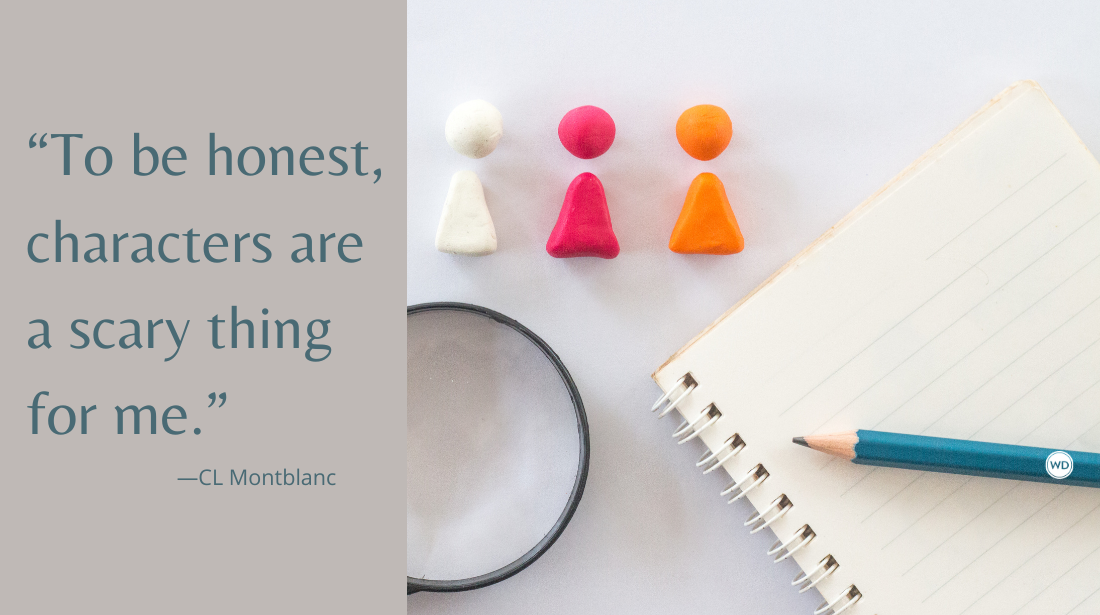4 Tips for Writing a Compelling Introvert
Author Claire Alexander shares four tips for writing a compelling introvert that avoids stereotypes and embraces complexity.
It was never a conscious decision to make my debut novel’s eponymous heroine, Meredith Maggs, an introvert. Nor did I, a dedicated introvert myself, set out to follow the timeworn writing advice to “write what you know” (although I do think it’s good advice, if you follow it on a visceral level; I prefer to write what I feel).
It simply seemed natural that Meredith would be an introvert. At the start of the novel, she hasn’t left her home for 1,214 days. To survive an incredibly long period of self-isolation, a person needs to be OK with spending time alone, right?
Every reader relates to a character in their own way, but I didn’t want the primary response to Meredith to be sympathy. (Or—heaven forbid—boredom.) I have little control over that, of course. But for what it’s worth, here are four things I kept in mind while I was bringing Meredith—my wonderful, one-of-a-kind introvert, to life.
Make it a strength, not a weakness
For too long, introverts—both in fiction and in real life—have been judged harshly. Take Mr Darcy, the love interest of Jane Austen’s Pride and Prejudice protagonist, Lizzie Bennett. He spends the entire novel being labeled as aloof, arrogant, and unfriendly, until Lizzie figures out that he’s actually just an introvert—and also compassionate, intelligent, and sensitive.
So, don’t be too hard on your introvert character, because an aversion to small talk isn’t the same as rudeness and focusing on the inner world doesn’t make you anti-social.
Don’t succumb to stereotypes
Myths about introverts abound—they’re unhappy, hate people, and are too scared to take risks. As a long-time member of Introverts Anonymous (imagine if such a group existed; would anyone ever turn up?) who is now loud and proud about the merits and magic of this particular attribute, I want to see all the layers of our fictional introverts.
That means your introvert can thrive on being alone, but also love spending time with their friends. They can prefer socializing one-to-one or in small groups and be happier than the person who’s out every night in a huge crowd of people (aka the charming, irresistible extrovert).
Your introvert can take regular time out from the world at large but get a kick out of spending a day skydiving or swimming with sharks (or whatever). Look at Katniss Everdeen in the Hunger Games novels—she lives in her own head most of the time but is as fearless as they come.
Do your research
If you’re creating an introverted character and you’re not familiar with the complexities of this trait, take the time to learn about it. One of the biggest misconceptions is that introversion (and by the same token, extroversion) are types of behavior. In fact, it’s to do with how they get their energy, not how they behave.
For instance, while extroverts are energized by socializing in larger groups of people and having many friends, introverts are energized by alone time or hanging out with a smaller group of friends in a more intimate setting.
IndieBound | Bookshop | Amazon
[WD uses affiliate links.]
Explore what motivates them
Don’t forget that your introvert is a character like any other, and apply the same rules to make them compelling. What motivates them—an ambition, desire, goal or want? Do they have a secret? What’s their greatest weakness (polite reminder: It’s not their introversion). What aspects of their character are contradictory or “flawed?” Flesh out their backstory.
A good example is Jane Eyre by Charlotte Brontë. A classic introvert, Jane tells us, “I care for myself. The more solitary, the more friendless, the more unsustained I am, the more I will respect myself.” She’s a passionate and strong-willed character who won’t be led by those around her and stands up for what she believes in. She’s also prickly, judgmental, and self-righteous.
Introverts are rarely given the kudos owed to them for their host of favorable attributes. Through fiction, we can help to redress the balance.
Claire Alexander lives on the west coast of Scotland with her three children and two dogs. She has written for The Washington Post, The Independent, The Huffington Post, and Glamour. In 2019, one of her essays was published in the award-winning literary anthology We Got This: Solo Mom Stories of Grit, Heart, and Humor. When she’s not writing or parenting, she’s on her paddle board, thinking about her next book.








